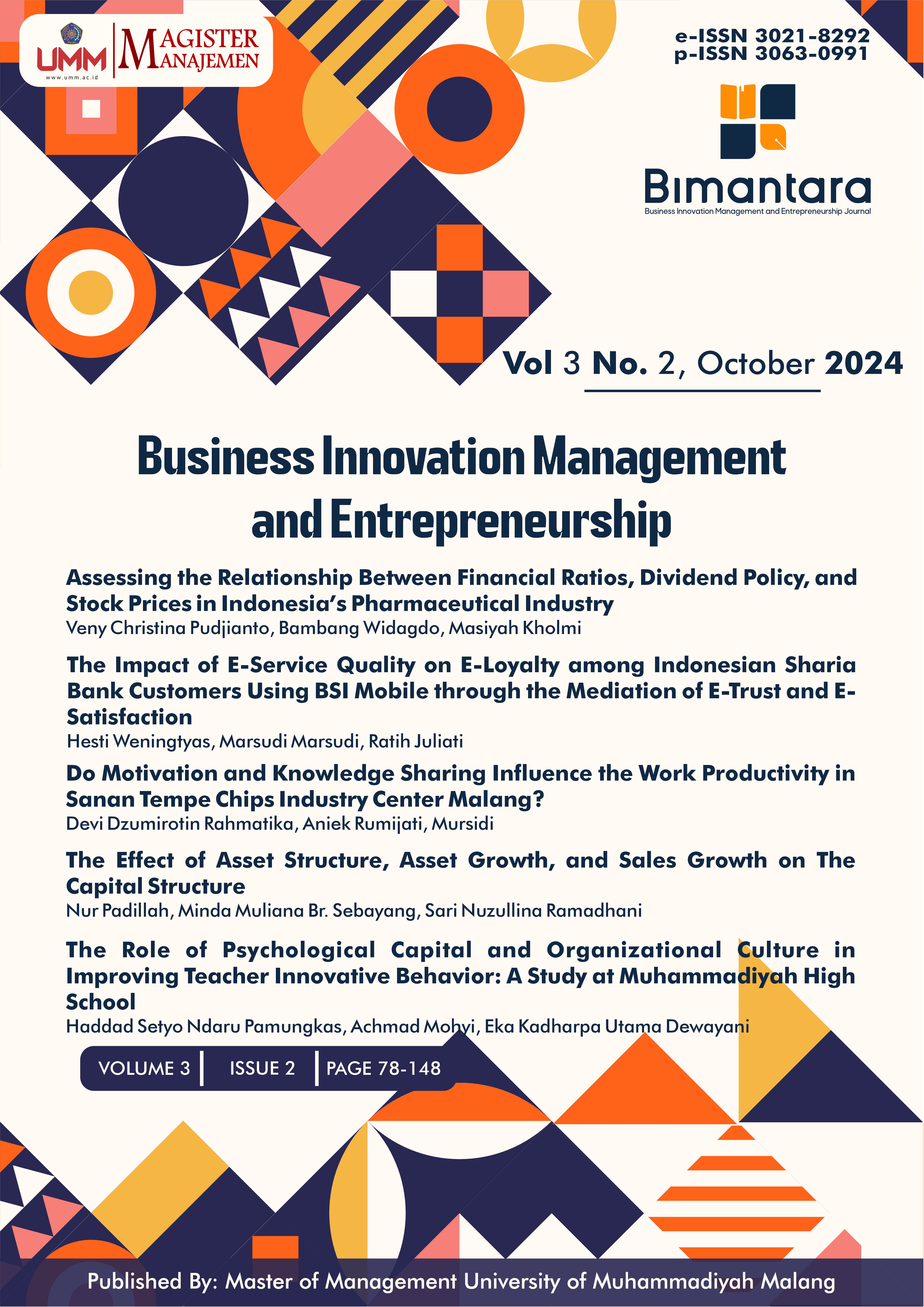Do Motivation and Knowledge Sharing Influence the Work Productivity in Sanan Tempe Chips Industry Center Malang?
DOI:
https://doi.org/10.22219/bimantara.v3i02.35274Keywords:
Motivation, Knowledge Sharing, Work Productivity, Organizational CommitmentAbstract
Work productivity is an increasingly hot topic of discussion, especially with the rapid development of technology and changes in the world of work. Therefore, this study aims to analyze the effect of motivation and knowledge sharing on work productivity with the mediating role of organizational commitment. This study involved all 102 employees at the Sanan Tempe Chips Industry Center Malang as the population, with a total sampling technique. Data were collected through questionnaires and analyzed using the SEM method with SmartPLS. The results showed that motivation significantly affects work productivity and organizational commitment. Knowledge sharing also has a positive impact on work productivity and organizational commitment. In addition, organizational commitment has a significant influence on work productivity. Other findings show that organizational commitment mediates the effect of motivation and knowledge sharing on work productivity. The implications of this study emphasize the importance of improving motivation and knowledge-sharing practices to strengthen organizational commitment, which in turn can increase work productivity. Managers can focus on training programs and strategies to increase employee motivation and improve organizational performance and commitment.
Downloads
Downloads
Published
How to Cite
Issue
Section
License
Copyright (c) 2024 Devi Dzumirotin Rahmatika, Aniek Rumijati, Mursidi

This work is licensed under a Creative Commons Attribution-ShareAlike 4.0 International License.
The journal use












